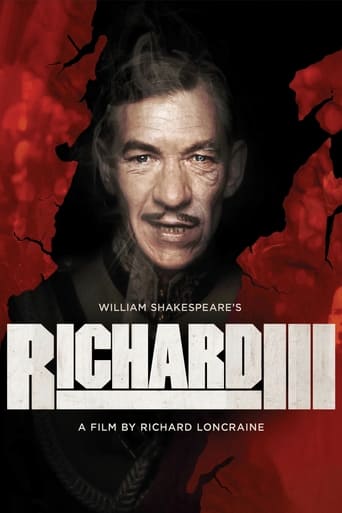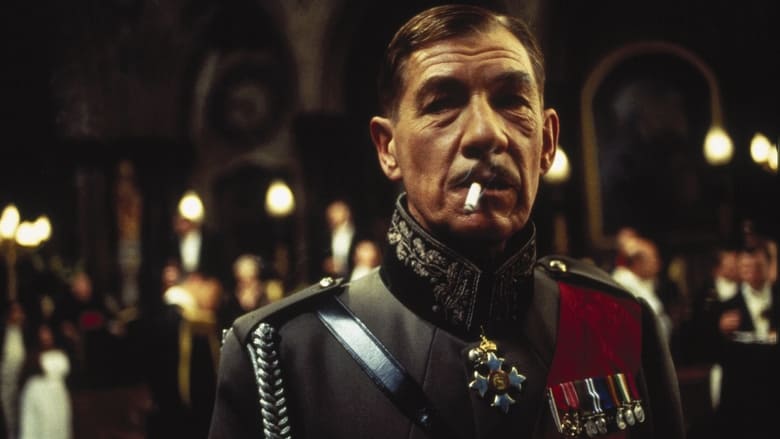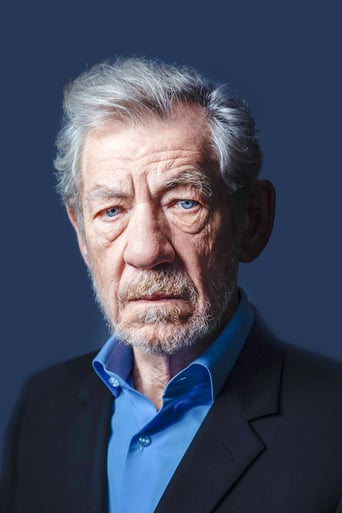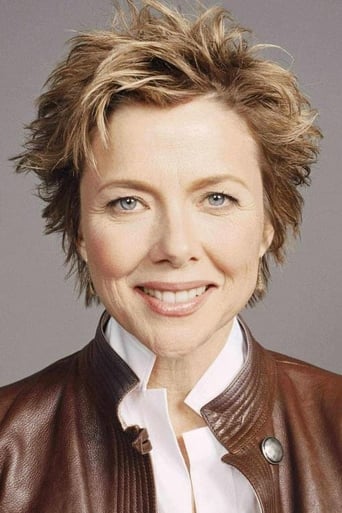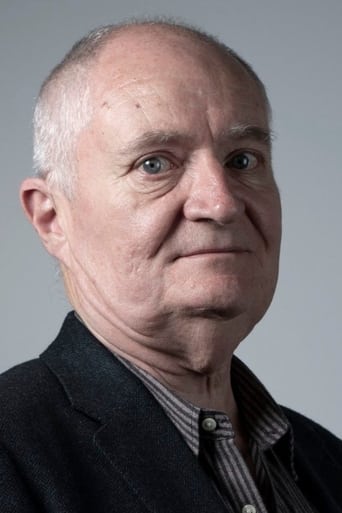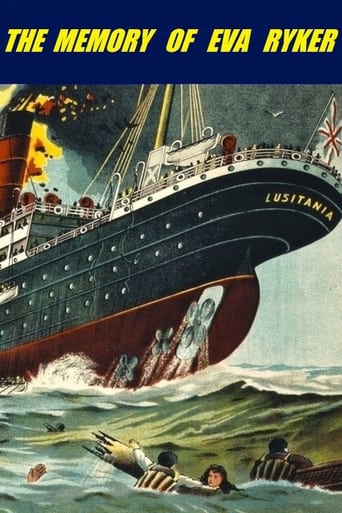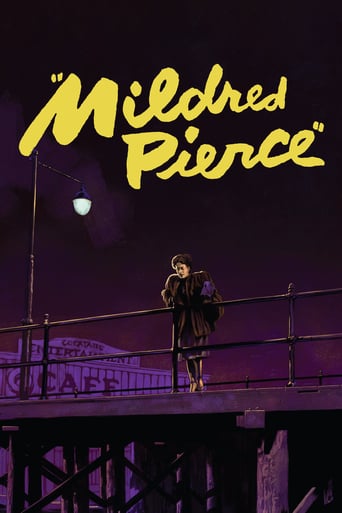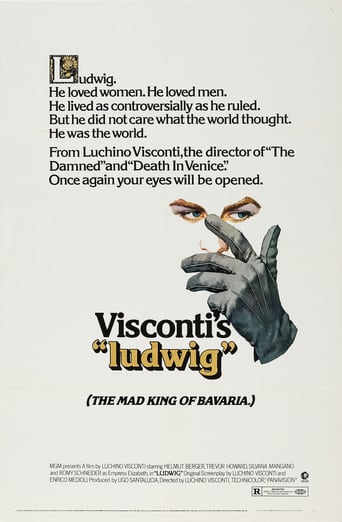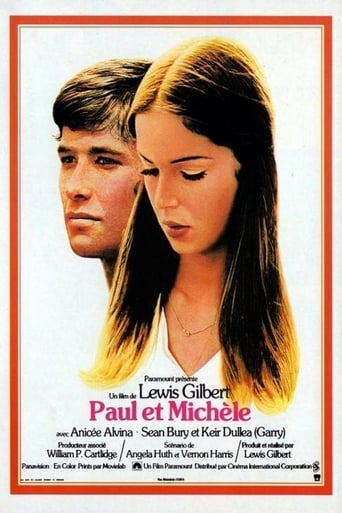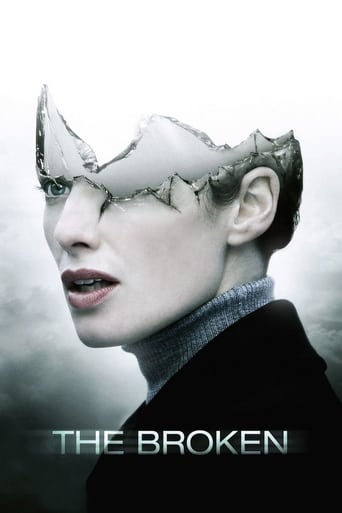Richard III (1995)
A murderous lust for the British throne sees Richard III descend into madness. Though the setting is transposed to the 1930s, England is torn by civil war, split between the rivaling houses of York and Lancaster. Richard aspires to a fascist dictatorship, but must first remove the obstacles to his ascension—among them his brother, his nephews and his brother's wife. When the Duke of Buckingham deserts him, Richard's plans are compromised.
Watch Trailer
Cast
Similar titles
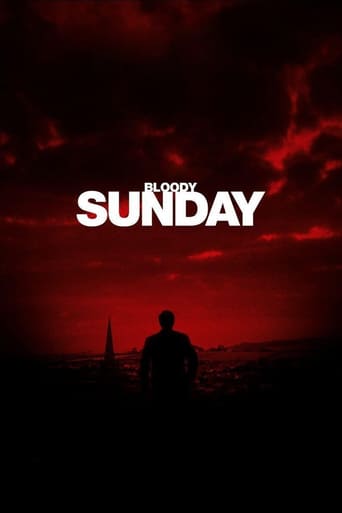
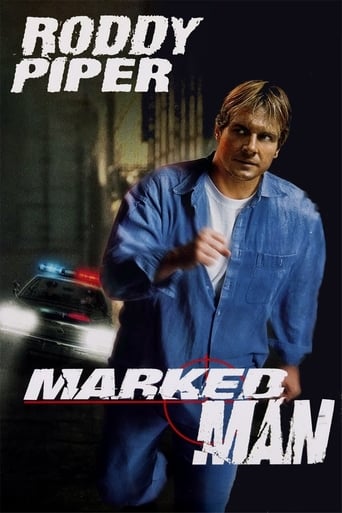
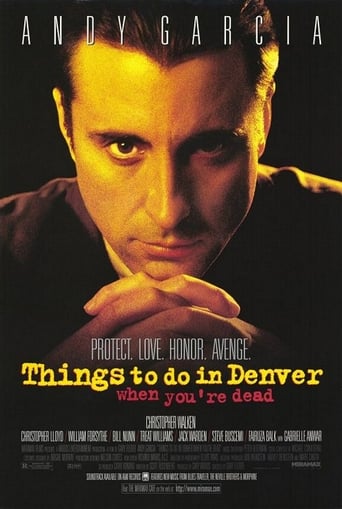
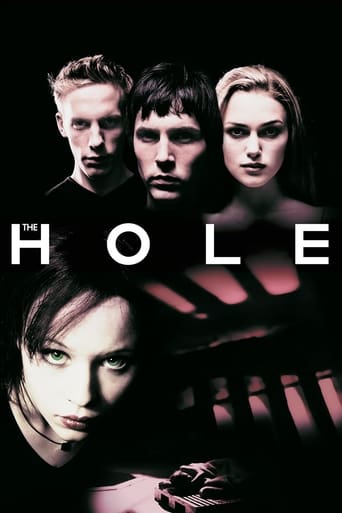
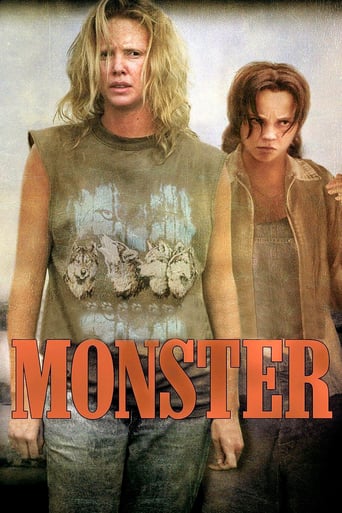
Reviews
Simple and well acted, it has tension enough to knot the stomach.
This story has more twists and turns than a second-rate soap opera.
Like the great film, it's made with a great deal of visible affection both in front of and behind the camera.
The story, direction, characters, and writing/dialogue is akin to taking a tranquilizer shot to the neck, but everything else was so well done.
at the first sigh, an eccentric adaptation. at the second, a magnificent one. because Richard III becomes the perfect guide on the halls of the second part of XX century. the old words, the well known scenes, the speech, the characters are keys for understand events and decisions and nightmares from inter-war period. and that gives to the film of Richard Loncraine a special status. because it is more than an experiment but definition of roots of evil. because few scenes seem be pages from history book. because In McKellen propose the same Richard but in a more profound and subtle manner. translation of Shakespeare in a dystopia , suggesting many similarities with contemporary dictatorships becomes an useful exercise of memory and rediscover of past. so, an inspired idea and a great work.
Placing one of Shakespeare's history plays in another specific historical period is always a bit of a risky thing. Such a ploy more frequently works better on stage than on screen –our suspension of belief being somewhat more liberal in a theatre than in front of a screen. Often the transfer in time is to a "generic" future historical setting, with a bit of this period and a bit of that. Sometimes this works, sometimes it doesn't. The reason I think placing this version of Richard III in the 1930s works so well is the faithfulness to that conceit, which is carried through impeccably in every detail, though never in a forced or laboured way. It is a clever, often witty, adaptation of Shakespeare's masterly examination of one man's relentless pursuit of power –and has both elegance and a style of its own aside from the play it is based on, and a healthy respect of Shakespeare's glorious language and characters.Perhaps the language is what may deter some people from fully enjoying this, though I would argue that it merely demands paying a little more attention to what is being said than when watching a "normal" film. Contrary to what many may think, Shakespeare's language is not difficult or obscure –quite the opposite– but you do need to listen to it! Here, of course, you are helped by having some of the finest actors around, with not only great command of that language, but the ability to present clearly defined yet complex characters, so that we are able to keep track of who is who in the web of family connections and intrigue. The film is much shorter than the play (Shakespeare's longest), and does away with some characters and combines others into one figure. This polishes the narrative somewhat, but does not take anything vital away from the unfolding tale. I do, however, recommend going back to the original play if you enjoy this film, because it will give an even broader appreciation of the story. And what a story!Centre-stage (or centre-screen, in this case) is Ian McKellen as Richard. It is surely his finest screen performance, and is certainly the one that really made me appreciate his work when I first saw the film upon its original release. Like Olivier before him, his Richard is a performance perfected through countless performances on stage in the role, and with devilish charm he milks each ounce of scheming, determination and wickedness from his scenes. Yet, unlike Olivier, he also shares with us a certain clumsiness and even pathos, which though it does not excuse in any way his actions does give us some understanding of why he has become the grotesque figure he is.Of the other performances I particularly like Jim Broadbent's take on the Duke of Buckingham –his beaming face has eyes of steel, and he seems to be silently scheming, listening, and judging in every scene in which he appears. Anette Bening also does a terrific job and makes more much of her part than is written. But all the actors do wonders in conveying their own particular "angsts" and concerns. Seeing the film again now, I only wish it was longer and we saw even more of some of them.Finally I must applaud the designers of the production –both visual and aural– who have created a totally believable alternate English setting of the 1930s. It is both familiar and alien at the same time –which is what makes the film's central idea so chilling: That such a thing could have happened in England at this time as it did in Germany and Italy and Spain. Shakespeare may have been writing about the 15th century, but the scheming of despots, hungry for power, goes on and on and on.I rate this as one of my favourite Shakespeare films!
I would not call this the definitive version of Shakespeare's Richard III due to its relatively brief length, but it is one of the best film adaptations of the play, if only for Ian McKellan in the title role.McKellan brings devilish glee to the part of Richard. Whether he's manipulating, murdering, or seducing, he's never boring to watch. That he has photos taken of the bodies of his victims adds a macabre touch to his villainy.The move from the 1480s to the 1930s was an unconventional but brilliant move on the part of the filmmakers. The story adapts well to an alternate fascist England. The sets, locations, and costumes are all well-suited to the pre-WWII period. The music is fabulous, evoking 30s jazz and adapting the classic sonnet "Come Live with Me and Be My Love" to a Depression-era love ballad style.If this film has a fatal flaw, it's the running time. 100 minutes is not enough and makes this feel more like a Cliff Notes version of the story than the real thing. The supporting parts are perfectly cast, but their parts are all so cut down that we don't get to connect to them the way we do in the longer 1955 Olivier version. The only supporting characters who get to leave much of an impression are Anne, Elizabeth, Edward, and the Duchess of York. Everyone else is barely there long enough to make much of an impression on the viewer.Nevertheless, this film is a lot of fun. The 1930s setting is well-realized and McKellan is great. But I still believe the Olivier adaptation is the superior film.
Now I have heard it said that the beauty about Shakespeare is that you can take it out of the setting in which the original play was written in, place it in a new setting, and it will still be a brilliant play. Now this is something that I do not necessarily agree with, namely because while up until the 20th Century this could be the case, the world has changed and a lot of the dialogue simply does not fit. Now the events of this film are set in the 15th Century, however the film itself is set in the 1930's. This in itself worked well (and as I argue, made for a very original film) but it falls apart at the end when Richard, after his jeep is bogged, cries out 'a horse, a horse, my kingdom for a horse'. This, personally, does not really make any sense on the modern battlefield (not that horses aren't used, back in 2004 or 2005, I can't quite remember when, the capital of Kyrgistan was stormed by men on horseback), however I really do not want this minor problem destroy a good film. What this film is doing, is taking the story of Richard III out of the historical content and simply turning into a play about a tyrant.Now, it is debatable as to whether Richard III was actually a tyrant. He was the last of the Plantagenet dynasty, and was deposed at the battle of Bosworth field, after Henry Tudor defeated him and claimed the English throne for himself. This was considered to be the end of England's medieval period and brought not only stability to the country, but also ushered her into the Modern Era. Beforehand, England has just come out of a 100 year war with France (on the losing side) and this sent the country into civil war (the War of the Roses) in which the houses of Lancaster and York fought over the English Throne. The beginning of the play has Edward assume the throne after his predecessor, Henry VI is defeated in battle, however Edward is not on the throne for long and after he dies his son, Edward, takes the throne with Richard as Lord Protector. However, the barons vote to give the throne to Richard, and the crown prince and his brother then disappear.What is not clear is whether Richard was actually responsible for Edward's death and his children's disappearance, and whether his took the throne through manipulation and stealth (something which had been happening since the close of the 100 years war). What Shakespeare does though is turn Richard into a villain. It appears that Richard's deformity was a creation of Shakespeare, and the rumour that the princes were murdered in the Tower of London is also said to be of his creation. In fact, it is suggested that the princes simply vanished from public life after Richard was crowned.One might raise the point that the princes were imprisoned in the Tower of London. While these days the Tower of London is seen as a prison, back then this wasn't the case. The Tower, along with numerous other castles, were originally built by William the Conquerer to protect his newly conquered realm, and later reinforced by Edward III. The Tower of London in Richard's time was simply another castle, and it was only after this incidence that it inherited its reputation. It should also be remembered that in those days royalty, when imprisoned, were held in the castles, but not in the dungeons as we imagine. Castles were luxurious (and the Tower of London was no exception) and while one may have been imprisoned, imprisonment meant that one simply could not leave the castle.Another thing that stood out with this movie was how Richard came to the throne. We have the nobles and barons all pressuring him to take the throne, and in the end he relents. However, this film (and I suspect Shakespeare as well) manipulate this to make it appear that it was all a part of the plan between Buckingham and Richard. However, once Richard is on the throne, he becomes even more wretched and corrupt, in then end killing children and rejecting his friends, until he is left alone on Bodsworth Field. It is funny that when he does cry out 'a horse, a horse, my kingdom for a horse', he really did not have a kingdom left to give. He had already lost. As for the horse, well if you led an army and you lost your horse, then you were in trouble.It is a shame that this film is very difficult to come by because I really do like this movie. I found it original, and the setting in the 1930's with Richard taking on a fascist mantle upon assuming the throne worked very well. While fascism did not exist in the 15th Century, and while Richard was strictly not a fascist, he was a tyrant (and least as the play portrays him) and to put him in the uniform of a fascist simply adds to the impression of tyranny that the play creates.
